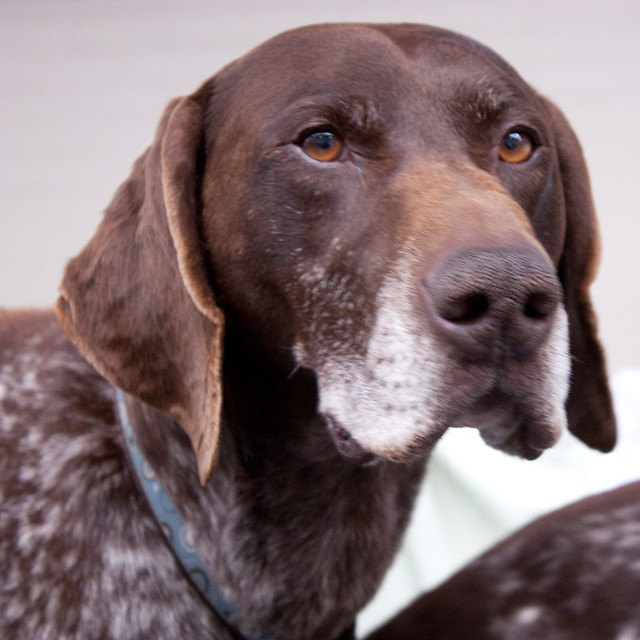 |
| (Photo credit: Wikipedia) |
German Shorthaired Pointers were originally bred from English Foxhounds, English Pointers, and Old Spanish Pointers. Physically, these dog breeds are often muscular and tight-skinned. German Pointers have lean necks and strong backs. These dogs have easily manageable short coats that come in various shades of white and brown.
All these physical attributes help German Pointers be the incredibly efficient hunting dogs that they are. Specifically speaking, you can rely on these top-of-the-line hunting dogs to point, retrieve, and track whether it be on land or water. Their keen sensitivity is characterized by their incredible sense of smell. And due to their intelligence, learning new tricks or challenging commands is never a problem. In fact, they welcome such challenges as part of their natural willingness to please.
However, don't let this dog's agility deceive you, they are incredibly outgoing and affectionate as well. As people-oriented dogs, they thrive on companionship. They love being around people and are safe to have around children. Essentially, Shorthaired Pointers make ideal companions for casual sportsmen who want family-oriented dogs as well.
Having the ability to be as domesticated as they are, German Pointers still require a lot of exercises. They need constant stimulation to stay physically and mentally fit. They usually prefer large backyards to keep themselves occupied. This is one of the reasons that German Pointers may not be the best apartment dogs. However, these dogs can also be trained to adapt to such living conditions. Just make sure to take them out for long walks. Keep in mind that, these high-energy dogs make perfect jogging and running companions. Don't forget your dog leash though, as the hunting instincts of these dog breed are still very strong.
Other things to look out for are common canine health issues such as hip dysplasia and excessive weight gain. German Shorthaired Pointers have big appetites. To ensure that they stay within the healthy weight range, once again, make sure they get all the exercise that they need. But other than this, prepare to be amazed. German pointers are the embodiment of elegance, intelligence, and power.
Lea Mullins discusses hunting instincts in German Shorthaired Pointers. Find information about different dog breeds from TrainPetDog.com. Article Source: EzineArticles |


